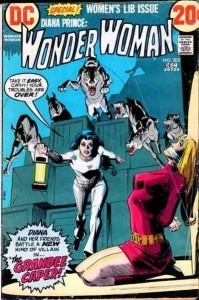Cat Rambo's Blog, page 70
August 10, 2013
LonestarCon3 (Worldcon 2013) Schedule
I’m arriving Thursday evening, departing Monday afternoon. I did sign up for a Kaffeeklatsch but haven’t heard anything about that yet. I’m also planning on spending some time helping at the SFWA table.
Reading: Cat Rambo (Reading) (Participant), Fri 11:00 – 11:30, 002B (Readings) (Convention Center)
How to Write a Short Story (Panel) (Participant), Sat 11:00 – 12:00, 001AB (570 — No AV) (Convention Center)
What will Replace Urban Fantasy? (Panel) (Moderator), Sat 12:00 – 13:00, 008B (160) (Convention Center)
Autographing: Sat 16:00 – 17:00, Autographing (Convention Center)
Writers, Their Fans and Flamewars, Oh My! (Panel) (Moderator), Mon 12:00 – 13:00, 007B (160) (Convention Center)
5 more days if you want to help determine my hair colors for the con.
August 8, 2013
Fanzo: So You Don’t Have to Watch Sports
Go to Fanzo.me to find out more about the app.
So Wayne’s working for this new company, Fanzo, which provides a mobile app for sports fans so they can follow the latest social media news about their favorite teams on their phones. Which is swell for the sports fan, but I want to point out something for another group that I happen to belong to and believe is a demographic they’re overlooking.That is: the few, the proud, the ones who don’t give a hoot about sports. We just don’t care. And yet we live with people who love ‘em. And Fanzo provides a bridge. Using Fanzo, I can have tidbits with which to engage my loved one. For example, when Wayne came in the other day, I was able to say, “Hey, did you see the Mariners signed Quintero?” Do I know who Humberto Quintero is? Nope. But I do know the Mariners signed him. Thanks, Fanzo!
Fanzo: It’ll help you fake enough interest in sports that you can survive your relatives, in-laws, and assorted friends.
I can’t understand why they haven’t hired me as a marketer yet.
humberto
Go to Fanzo.me to find out more about the app.
So Wayne’s working for this new company, Fanzo, which provides a mobile app for sports fans so they can follow the latest social media news about their favorite teams on their phones. Which is swell for the sports fan, but I want to point out something for another group that I happen to belong to and believe is a demographic they’re overlooking.That is: the few, the proud, the ones who don’t give a hoot about sports. We just don’t care. And yet we live with people who love ‘em. And Fanzo provides a bridge. Using Fanzo, I can have tidbits with which to engage my loved one. For example, when Wayne came in the other day, I was able to say, “Hey, did you see the Mariners signed Quintero?” Do I know who Humberto Quintero is? Nope. But I do know the Mariners signed him. Thanks, Fanzo!
Fanzo: It’ll help you fake enough interest in sports that you can survive your relatives, in-laws, and assorted friends.
I can’t understand why they haven’t hired me as a marketer yet.
Tips For Writers: Examining Your Own Process
 We had the first session of the advanced workshop last night. I’m delighted by the mix, and expecting wonderful things from the class. Some are published already, some are just breaking in.
We had the first session of the advanced workshop last night. I’m delighted by the mix, and expecting wonderful things from the class. Some are published already, some are just breaking in.
Unlike the Writing Fantasy and Science Fiction Stories class, we are not focusing on one of the basics each week, like characters, plot, or world building. Instead, I am trying to let the class drive itself where it can. My hope is that everyone, by the end of class, has not just been critiqued a couple of times, but has a better sense of their writerly process and how to make it more efficient, more confidence in finishing stuff and getting it sent out, and new ways of moving story from idea to finished draft.
So here is the assignment I gave them, in the hope that it will prove useful for other writers trying to figure out their process:
I asked them each to make an account at the Submissions Grinder, even if they already were tracking their stories in another way. I said I would like them to send out at least one submission and track it in the grinder, but if they couldn’t manage that, then I wanted them to identify at least one market that they wanted to send something to. We spent some time looking at my old submissions spreadsheet, since the question came up, after how many rejections do you trunk story? My answer is that you don’t trunk a story unless you would find it embarrassing to be published. I have some stories that were out over a dozen places before finally finding a home.
We did an in class writing exercise to make them think about their writing process. I want to them to try varying their process three times over the course of the next week. They can vary their process spatially, by changing the location where they write: outside under a tree or in a coffee shop or at the library or in their closet. Or they can vary it temporally by writing at a different time than they usually do. Or they can vary it according to process: using pen and paper instead of the keyboard, for one, or by writing with outline if they don’t usually use one. Or they can even look at their work and see if there is a pattern they want to vary, such as always writing in past tense.
Finally, they were assigned to read this and come in prepared to talk about how the writer creates emotion in the reader. That’s a piece that I personally cannot read without crying, so I think it will prove an interesting discussion, and hopefully provide some guidance for creating depth of emotion in their own work.
Classes that are coming up include the Editing 101 workshop this Sunday morning. If you are interested in learning to revise and rewrite, which is often the thing that moves adequate pros to the professional level, you might want to check it out. The following weekend, I am teaching the online presence for writers class on Saturday morning and a character building workshop on Sunday morning.
August 5, 2013
When Can You Get Away with Wordy Prose?
 The following comes from an email exchange between myself and John Barnes, whose story I critiqued and who has given permission to reprint the exchange
The following comes from an email exchange between myself and John Barnes, whose story I critiqued and who has given permission to reprint the exchange  I know that this question often comes up for newer writers. They see writers who write long, elaborate sentences and wonder why they then get criticized for overly long and complicated sentences.
I know that this question often comes up for newer writers. They see writers who write long, elaborate sentences and wonder why they then get criticized for overly long and complicated sentences.
John: When you said to work on writing on a sentence /paragraph level, were you referring to sentence structure or cutting needless words? Was it well-written? Would a good play on muscle memory to intersperse the story with flashes of memory, along the lines of what Aliette De Bodarde did with immersion?
The answer to the question in the first sentence is yes to both. I think that you are at a point in your writing where you should both be looking at constructing interesting, graceful sentences as well as making sure that you remove excess words. Extraneous language often gets in the way of a story’s speaking to a reader, muffling its impact.
I thought the language was competent, but still needs the final polish that removes any awkwardness or places where the prose calls attention to itself. One of the ways a writer convinces the reader to relax and give into the experience of the story is by convincing them they are in expert hands that will keep reminders that they are reading to a minimum. Awkward sentences or passages that are overly wordy can remind a reader that they are reading and generally are experienced as a negative rather than a positive.
Absolutely a good play on muscle memory that intersperses the story with flashes of memory would be great. To make it superlative, the language needs to be constructed as clearly as possible. If you go over “Immersion,” you will see that in every sentence, words are pulling their weight and there are no extras.
John: Thanks, so keep it simple then? What about writers like Cat Valente or Laird Barron who usually have flowery prose in their writing? On Neil Clarke’s sub page for Clarkesworld he says “language is important, there’s no distinction between “style” and “substance” or “story” and “writing”. What exactly did he mean by that? I only ask because you have many stories published in their issues and that ezine is like the uncatchable unicorn for writers like me. lol Thanks again.
If you look at Cat Valente or Laird Barron’s prose you’ll see that although it is flowery, every word in it is still doing something.
To see what I mean, let’s look at a passage from both of them. Here is one of Valente’s:Ravan told me these stories. He sent up a great hexagonal library in his Interior, as dusty and dun-colored and labyrinthine as any ancient scriptorium. He made himself a young novice with a fresh-shaven tonsure, and me a country friar with a red, brandy-drinking nose. He showed me the illuminator’s table, and a great book whose pages had golden edges and illuminations in cobalt and oxblood and Tyrian purple, and the images showed great machine armies trampling men underfoot. They showed cruel metal faces and distant, god-like clouds of intellect: incomprehensible and vast and uncaring. They showed the Good Robot desperately asking what love was. They showed fatal malfunctions and mushroom clouds. They showed vicious weapons and hopeless battles, noble men and women with steady gazes facing down their cruel and unjust artificial children, who gave no mercy.
These are complex sentences at times. They employ poetic techniques, such as the repetition of “They showed” as well as the deliberately repeated conjunction “and” of “cobalt and oxblood and Tyrian purple”.
But there are no extraneous words, no words that are not accomplishing at least several of the following duties: constructing a world for the reader, conveying information about the world, creating a specific tone, amplifying the engaging nature of the prose with sensory detail, providing aural delight when mentally read, providing beautiful or entertaining language, etc.
Here’s a passage from Laird Barron’s Blood & Stardust, which features a protagonist that has some similarities with yours.My nerves weren’t always so frayed; once, I was too dull to fear anything but the Master’s voice and his lash. I was incurious until my fifth or sixth birthday and thick as a brick physically and intellectually. Anymore, I read anything that doesn’t have the covers glued shut. I devour talk radio and Oprah. Consequently, my neuroses have spread like weeds. Am I getting fat? Yes, I’ve got the squat frame of a Bulgarian power lifter, but at least my moles and wens usually distract the eye from my bulging trapeziuses and hairy arms.
I also dislike the dark, and wind, and being trussed hand and foot and left hanging in a closet. Dr. Kob used to give me the last as punishment; still does it now and again, needed or not, as a reminder. Perspective is extremely important in the Kob house. The whole situation is rather pathetic, because chief among his eccentric proclivities, he’s an amateur storm chaser. Tornadoes and cyclones don’t interest him so much as lightning and its capacity for destruction and death. Up until his recent deteriorating health, we’d bundle into the van and cruise along the coast during storm season and shoot video, and perform field tests of his arcane equipment. Happily, those days seem to be gone, and none too soon. It’s rumored my predecessor, daughter numero uno, was blown to smithereens, and her ashes scattered upon the tides, during one of those summer outings.
Here again, sentences are leanly fleshed and adverbs like “rather” and “extremely” are used sparingly. Notice that sentences are not uniformly long. The average sentence is 12 words long, so let’s see how Barron’s passage maps against that. Its sentences by word count go 20/17/11/5/7/4/29/20/23/8/17/30/11/24. Looking at that, you can see how although usually sentences are longer than average, some short ones are interspersed, creating what I would describe as texture or perhaps rhythm, to the writing.
Writers don’t have to just construct stories on the level of character and situation. They need to then conveyed that story through sentences that are constructed as optiomally as possible to deliver the experience of the story to the reader.
I think this is why it Neil Clarke is referencing on the submissions page. He wants stories that pay attention not just to the plotting, that the language in which it is conveyed and the skill with which the experience is created for the reader. This is one of the hard to acquire but essential skills that end up elevating writing from good to great, in my opinion.
John: Thanks for clearing that up, now that I look at it more closely, I can see that the sentences aren’t that complex, just seem dense when read as a whole. And there are very few “dress-up” words. Does a writer need poetic techniques to give the story quality? Asimov’s and some of the work in F&SF have pretty transparent prose?
I don’t know that a writer needs poetic techniques, but they certainly help. A story has to have some reason for the reader to want to keep going — sometimes that’s beauty of style, but more often it’s also the plot and the characters and the cool world-building, etc. Some writers get by on something else and stick to a very plain — and sometimes downright awkward, hence my reluctance to say “needs” — prose, but they’re going killer plots or heart-wringing characters or snappy dialogue, all in spades.
I think for me a dense style — one with conscious use of poetic technique, symbology, and sensory input — has worked well, and it is something that seems to appeal to Clarkesworld.
Here’s a sample passage from The Worm Within, which appeared there. It’s meant to be read aloud, and plays with repeated sounds. It’s also an unreliable narrator and the sentence structures are meant to provide a sense of unease in the reader, as are some of the sensory details.Once inside, I linger in the foyer, taking off my cloak, the clothes that drape my form as though I were some eccentric, an insistent Clothist, or anxious to preserve my limbs from rust or tarnish. Nude, I revel in my flesh, dancing in the hallway to feel the body’s sway and bend. Curved shadows slide like knives over the crossworded tiles on the floor, perfect black and white squares. If there were a mirror I could see myself.
But after only a single pirouette, my inner tenant stirs. He plucks pizzicato at my spine, each painful twang reminding me of his presence, somewhere inside.
He says, They’ll find you soon enough TICK they’ll hunt you down. They’ll realize TICK what you are, a meat-puppet in a TICK robot world, all the shiny men and women and TICK in-betweens will cry out, knowing what you are. They’ll find TICK you. They’ll find you.
Here is a section where I use plainer language, in another Clarkesworld story, “The Mermaids Singing, Each to Each”.I tilted my head, listened to the engines, checking the rhythms to make sure everything was smooth. The familiar stutter of the water pump from behind me was nothing to worry about, or the way the ballaster coughed when it first switched on. I knew all the Mary Magdalena’s sounds. She’s old, but she works, and between the hydroengines and the solar panels, she manages to get along.
Sometimes I used to imagine crashing her on a reef and swimming away, leaving her to be covered with birdshit and seaweed, her voice lasting, pleading, as long as the batteries held out. Sometimes I used to imagine taking one of the little cutting lasers, chopping away everything but her defenseless brainbox, deep in the planking below the cabin, then severing its inputs one by one, leaving her alone. Sometimes I imagined worse things.
I inherited her from my uncle Fortunato. My uncle loved his boat like a woman, and she’d do things for him, stretch out the last bit of fuel, turn just a bit sharper, that she wouldn’t do for me or anyone else. Like an abandoned woman, pining for a lover who’d moved on. I could have the AI stripped down and retooled, re-imprint her, but I’d lose all her knowledge. Her ability to recognize me.
I tried in this passage to convey something about the main character’s emotional state. When it breaks into more poetic language with the repeated “Sometimes I used to imagine beginning each sentence” the repeated structure is intended to intensify the emotion that underlines the passage, the deep anger that the protagonist feels towards the Mary Magdalena. Studying poetry is not time wasted for a brighter, particularly the strategies involving repeated sounds, rhythms, and figures of speech. that sort of study is what leads to the degree of skill that allows a writer to get away with “wordy” prose.
Take a Class And Get Some Bonus Reading
 Bonus: Sign up for a class before August 15, 2013 and get an electronic copy of the reward reading packet for my Clarion West Writeathon sponsors. That’s over 100 pages of fiction that you’ll see before it’s ever published, including the first 50 pages of literary horror novel, Queen of the Fireflies and the first 50 pages of fantasy novel Beasts of Tabat. When you sign up, indicate what format you would like your reading in: mobi, pdf, epub, or doc.
Bonus: Sign up for a class before August 15, 2013 and get an electronic copy of the reward reading packet for my Clarion West Writeathon sponsors. That’s over 100 pages of fiction that you’ll see before it’s ever published, including the first 50 pages of literary horror novel, Queen of the Fireflies and the first 50 pages of fantasy novel Beasts of Tabat. When you sign up, indicate what format you would like your reading in: mobi, pdf, epub, or doc.
There are several slots still open in the Writing Fantasy and Science Fiction Stories workshop on Monday evenings. There’s also plenty of room in the two new workshops. The first is on Creating Characters, and will help you learn to create characters who shape your stories and engage deeply with your readers. The second is on plotting and is designed to help you take something from rough idea to detailed outline and then finished draft.
Other classes with openings include the Art of the Book Review, Podcasting Basics, First Pages Workshop, Building an Online Presence for Writers, Literary Techniques for Genre Fiction, and the flash fiction workshop. For more details including times, days, and prices, go to: http://www.kittywumpus.net/blog/upcom...
Remember the new referral program where referring three new students nets you a free workshop! As always, former students receive 10% off class prices and I am willing to discuss sliding scale payments. To reserve a class spot, mail me at catrambo AT gmail.com. Payment can be made via PayPal – contact me for the address to send that to.
August 4, 2013
Upcoming: Building an Online Presence for Writers E-book
 I’m putting together many of my notes from the Building an Online Presence for Writers class as well as the various blog posts I have done about online promotion and notes from the Near + Far book launch campaign in an e-book by the same name that I hope to release at the end of August, along with another e-book, Podcasting for Speculative Fiction Writers, written with Folly Blaine.
I’m putting together many of my notes from the Building an Online Presence for Writers class as well as the various blog posts I have done about online promotion and notes from the Near + Far book launch campaign in an e-book by the same name that I hope to release at the end of August, along with another e-book, Podcasting for Speculative Fiction Writers, written with Folly Blaine.
So far, it looks as though the Building and Online Presence book will be between 50 and 60 thousand words altogether, and include a number of screenshots. It’s aimed at both writers just beginning their careers and wanting to build their online presence as well as mid and later career writers who want to refine their online presence. Right now it’s a little under half-drafted, with about 27k laid out in the Scrivener project (which is GREAT for nonfiction works like this).
One of the things that I think will make it useful to writers is that I try to give you examples for the various concepts I talk about. I include all of the blog posts from the Near + Far book launch as well as screenshots showing the book’s presence on various social networking sites, and in each case provides some notes about SEO strategies, tags, images, All and other promotional considerations that affected the construction of the post. Getting a chance to see the campaign in action will be a valuable chance to see the concepts in action.
Topics that are covered include: building a fan base, the minimum web presence you should have as a writer, what to blog about, how to use social networks such as Facebook, G+, Pinterest, and Twitter to publicize your books, free tools that will help you maximize your online presence, maintaining your privacy, podcasting and videocasting, maintaining multiple identities on the Internet, how to write a press release for your book, how to take mobile devices into consideration when shaping your online presence, and how to measure your success at all of these in a way that will help you shape your Future strategy.
If you’re interested in signing up to be notified when the book comes out, please sign up below. If you’re interested in the online class, the next one is Saturday, August 17, 9:30-11:30 AM and costs $99.
#mc_embed_signup{background:#fff; clear:left; font:14px Helvetica,Arial,sans-serif; }
/* Add your own MailChimp form style overrides in your site stylesheet or in this style block.
We recommend moving this block and the preceding CSS link to the HEAD of your HTML file. */
Subscribe to get news when the Building an Online Presence for Writers ebook is released!
* indicates required
Email Address *
First Name
Last Name
Email Format
html
text
mobile
Powered by MailChimp
var mce_preload_checks = 0;
function mce_preload_check(){
if (mce_preload_checks>40) return;
mce_preload_checks++;
try {
var jqueryLoaded=jQuery;
} catch(err) {
setTimeout('mce_preload_check();', 250);
return;
}
try {
var validatorLoaded=jQuery("#fake-form").validate({});
} catch(err) {
setTimeout('mce_preload_check();', 250);
return;
}
mce_init_form();
}
function mce_init_form(){
jQuery(document).ready( function($) {
var options = { errorClass: 'mce_inline_error', errorElement: 'div', onkeyup: function(){}, onfocusout:function(){}, onblur:function(){} };
var mce_validator = $("#mc-embedded-subscribe-form").validate(options);
$("#mc-embedded-subscribe-form").unbind('submit');//remove the validator so we can get into beforeSubmit on the ajaxform, which then calls the validator
options = { url: 'http://kittywumpus.us6.list-manage.co...?', type: 'GET', dataType: 'json', contentType: "application/json; charset=utf-8",
beforeSubmit: function(){
$('#mce_tmp_error_msg').remove();
$('.datefield','#mc_embed_signup').each(
function(){
var txt = 'filled';
var fields = new Array();
var i = 0;
$(':text', this).each(
function(){
fields[i] = this;
i++;
});
$(':hidden', this).each(
function(){
var bday = false;
if (fields.length == 2){
bday = true;
fields[2] = {'value':1970};//trick birthdays into having years
}
if ( fields[0].value=='MM' && fields[1].value=='DD' && (fields[2].value=='YYYY' || (bday && fields[2].value==1970) ) ){
this.value = '';
} else if ( fields[0].value=='' && fields[1].value=='' && (fields[2].value=='' || (bday && fields[2].value==1970) ) ){
this.value = '';
} else {
if (/\[day\]/.test(fields[0].name)){
this.value = fields[1].value+'/'+fields[0].value+'/'+fields[2].value;
} else {
this.value = fields[0].value+'/'+fields[1].value+'/'+fields[2].value;
}
}
});
});
return mce_validator.form();
},
success: mce_success_cb
};
$('#mc-embedded-subscribe-form').ajaxForm(options);
});
}
function mce_success_cb(resp){
$('#mce-success-response').hide();
$('#mce-error-response').hide();
if (resp.result=="success"){
$('#mce-'+resp.result+'-response').show();
$('#mce-'+resp.result+'-response').html(resp.msg);
$('#mc-embedded-subscribe-form').each(function(){
this.reset();
});
} else {
var index = -1;
var msg;
try {
var parts = resp.msg.split(' - ',2);
if (parts[1]==undefined){
msg = resp.msg;
} else {
i = parseInt(parts[0]);
if (i.toString() == parts[0]){
index = parts[0];
msg = parts[1];
} else {
index = -1;
msg = resp.msg;
}
}
} catch(e){
index = -1;
msg = resp.msg;
}
try{
if (index== -1){
$('#mce-'+resp.result+'-response').show();
$('#mce-'+resp.result+'-response').html(msg);
} else {
err_id = 'mce_tmp_error_msg';
html = '
'+msg+'
';
var input_id = '#mc_embed_signup';
var f = $(input_id);
if (ftypes[index]=='address'){
input_id = '#mce-'+fnames[index]+'-addr1';
f = $(input_id).parent().parent().get(0);
} else if (ftypes[index]=='date'){
input_id = '#mce-'+fnames[index]+'-month';
f = $(input_id).parent().parent().get(0);
} else {
input_id = '#mce-'+fnames[index];
f = $().parent(input_id).get(0);
}
if (f){
$(f).append(html);
$(input_id).focus();
} else {
$('#mce-'+resp.result+'-response').show();
$('#mce-'+resp.result+'-response').html(msg);
}
}
} catch(e){
$('#mce-'+resp.result+'-response').show();
$('#mce-'+resp.result+'-response').html(msg);
}
}
}
July 30, 2013
What Colors for Worldcon? You Decide.
Participating in a couple of group readings
The chance to pick up my copy of Beyond The Sun SF from Bryan Thomas Schmidt
The Glitter and Mayhem party. I want to do something worthy of it, so I’ve decided to add a couple more colors to my usual pink (explained in The Pink Hair Manifesto) just for WorldCon and let YOU decide the color. Just vote in the comments. The top three colors will get at least a streak’s worth of hair. If you are supporting me in the Clarion West Write-a-thon, even by just a dollar (which also gets you a bonus stack of fine fiction), your vote counts ten times as much. Everyone who votes gets entered to win a copy of the book or a piece of the Near + Far jewelry.
Here’s your options, all Manic Panic colors:
After Midnight
Atomic Turquoise (currently at 2 votes)
Bad Boy Blue
Blue Moon (currently at 10 votes)
Electric Amethyst
Electric Banana
Electric Lava
Electric Lizard
Electric Tiger Lily (currently at 1.5 votes)
Enchanted Forest
Fuchsia Shock
Green Envy
Infra Red
Lie Locks
Mystic Heather
New Rose
Pillarbox Red
Pretty Flamingo (currently at .5 votes)
Psychedelic Sunset
Purple Haze (currently at 31 votes)
Raven
Red Passion
Rockabilly Blue
Rock and Roll Red
Shocking Blue (currently at .5 votes)
Sunshine
Ultra Violet
Vampire Red
Vampire’s Kiss
Venus Envy
Violet Knight (currently at .5 votes)
Voodoo Blue (currently at 1 vote)
Wildfire (currently at .5 votes)
What I’m Working On: July 30, 2013
 What I am currently working on:
What I am currently working on:
Beasts of Tabat, the first in the fantasy trilogy I have been working on for a while now is with my agent, in preparation for what I hope is the final rewrite. So I’m wrangling the synopses for the two books that follow.
“Haunted” is a collaboration with Bud Sparhawk that started as a short story and has swelled to novella length. It is far future SF.
A military fantasy story, featuring the same landscape as Beasts of Tabat.
People who sponsored me in the Clarion West Writeathon (it’s not too late!) will be receiving a packet of writing produced during the last six weeks that includes several short stories, a novel excerpt, and several pieces of flash. So I’m putting that together and finishing up rewrites of a couple stories that will be included.
Prepping for a couple of the new classes, including a shortened version of the editing class, a workshop on character building, and a session on turning an idea into a finished piece.
Expanding an partially drafted literary horror piece, Queen of the Fireflies, which I’m planning on taking with me to a writing retreat in September (Clarion West sponsors will be receiving the first 50 pages).
A couple of other collaborative pieces still very much in the works.
Turning the notes from my building an online presence for writers class into an e-book.
Working with Folly Blaine on doing the same with notes from our podcasting class.
Continuing to do interviews, such as my recent one with Don Sakers. Upcoming ones include Django Wexler and Bud Webster.
Preparing for various con appearances, including WorldCon, KillerCon, GirlGeekCon, the Baltimore Book Festival, the Northwest Book Festival, SteamCon, and Orycon. If you are interested in voting to determine my hair color for WorldCon, click here.
July 29, 2013
Reading List: Superhero Fiction
 I recently posted in a Reddit thread about superhero novels and thought that the list I put together there might form an interesting blog post.
I recently posted in a Reddit thread about superhero novels and thought that the list I put together there might form an interesting blog post.
Superhero novels are near and dear to my heart for several reasons.
One, I grew up reading comic books and loved some of them dearly. The only fanfic I have ever written involved the uncanny X-Men and the super villain Arcade, along with a thinly veiled version of myself. It has, luckily, been lost and not recorded for posterity.
Two, I loved playing superhero RPG’s like Villains and Vigilantes and Champions. Superhero 2044 came out around the same time, but it wasn’t as interesting to my gaming group, which tended to stick with Champions.
This led in fact to three, which is that I once wrote a novel involving superheroes. I wrote it while in the Masters program in writing at Johns Hopkins. At the time, watchmen had just come out, and the possibilities of superhero literature had not, perhaps we shall say, been realized as effectively as it is today. In fact, I took the book to Tom Disch, who was teaching in the office next to me, and who read a chapter, fixed me with a gimlet eye, and asked, “but why bother?” Several publishing houses looked at the novel and felt it was well written but not commercial. Some time later, tragically, the manuscript was lost in the course of moves. Its heroes can be found in a short story which appeared in Strange Horizons, Ms. Liberty Gets a Haircut, which can also be found in story collection Near + Far. Other superhero stories by me appear in Corrupts Absolutely and Eyes Like Sky and Coal and Moonlight
So here’s some of my favorites:
From the Notebooks of Dr. Brain by Minister Faust is awesome superhero fiction. It’s told by the therapist of a superhero team that closely resembles the Avengers. Faust also has The Coyote Kings of the Space-Age Bachelor Pad.
Count Geiger’s Blues by Michael Bishop is amazing. Along the same lines is Bishop’s Brittle Innings, the story of a baseball playing monster.
The Wild Cards series edited by George R.R. Martin (of GoT fame) is tons and tons of fun and there are a LOT of them for those of us who like to read at a fast and furious clip.
In Hero Years I’m Dead by Michael Stackpole is terrific along with Once a Hero. I wish Stackpole would write more in this world.
Carrie Vaughn After the Golden Age is told from the point of view of the unpowered daughter of a pair of superheroes, Captain Olympus and Spark.
Playing for Keeps by Mur Lafferty.
Austin Grossman’s Soon I Will Be Invincible is told from alternating experienced villain and novice hero viewpoints.
Michael Chabon’s The Amazing Adventures of Kavalier & Clay is a classic.
The Sugar Frosted Nutsack by Mark Leyner is, like all of Leyner’s books, hysterical, but this time with superheroes.
Those Who Walk in Darkness by John Ridley is the beginning of a series that I found reminiscent of joint online project Shadow Unit, created by Elizabeth Bear, Holly Black, Leah Bobet, Emma Bull, Sarah Monette, and Will Shetterly.
Nobody Gets the Girl by James Maxey. Series.
Evil Genius by Catherine Jinks is YA superhero fantasy.
Karma Girl by Jennifer Estep is frothy and funny and sweeps you along in a nicely satisfying story. First of a series.
Along the same lines is Black and White, the story of a superhero and a supervillain friendship by Jackie Kessler and Caitlin Kittredge. First in a series.
Santa Olivia by Jacqueline Carey (also known for her Kushiel adult epic fantasy series) is the story of a group genetically engineered for superpowers. First of a series.
If you want something that goes back to some of F&SF’s roots, try Doc Savage or A Feast Unknown by Philip Jose Farmer.




